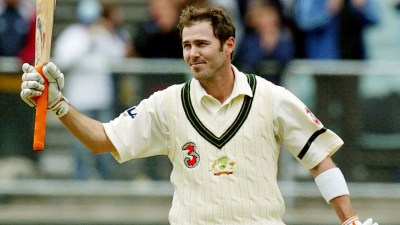Look at Ramadoss146;s latest weapon
What the Supreme Court told the Government not to do, it8217;s now trying to achieve through a proposed law. Turning the logic of reforms o...

What the Supreme Court told the Government not to do, it8217;s now trying to achieve through a proposed law. Turning the logic of reforms on its head, Health Minister Anbumani Ramadoss is seeking powers that will help him wrest control over the independent regulator of medical education across the country.
A Bill that is sought to be introduced in the forthcoming session of Parliament erodes the autonomy of the 50-year-old Medical Council of India MCI from all sides. Ramadoss, despite repeated attempts, was not available for comment.
8216;8216;The Bill clearly undermines the autonomy of the MCI and that will in turn compromise the quality of medical education in the country,8217;8217; said P C Kesavankutty Nayar, president of the MCI. 8216;8216;The executive committee will have to constantly look over its shoulders as the Bill leaves little scope for it to act in an independent, objective and unbiased manner.8217;8217;
Consider the key proposals in the Bill:
8226; Though the MCI is run by members independently elected from within the medical profession, the Bill empowers the Government to give directions to it 8216;8216;in the public interest.8217;8217;
8226; If any dispute arises between them on whether a question relates to public interest or not, the Bill adds for good measure that 8216;8216;the decision of the Central Government thereon shall be final.8217;8217;
8226; If the MCI8217;s executive committee or any member of it defaults 8216;8216;either wilfully or without sufficient cause8217;8217; in complying with any such direction, the Bill empowers the Government to dissolve the executive committee or remove the member concerned, even if he is the president.
8226; If any dispute arises between them on whether a question relates to public interest or not, the Bill adds for good measure that 8216;8216;the decision of the Central Government thereon shall be final.8217;8217;
8226; If the MCI8217;s executive committee or any member of it defaults 8216;8216;either wilfully or without sufficient cause8217;8217; in complying with any such direction, the Bill empowers the Government to dissolve the executive committee or remove the member concerned, even if he is the president.
8226; The provision to dissolve or remove can also be exercised on the basis of the Government8217;s 8216;8216;opinion8217;8217; that the executive committee or any of its members has 8216;8216;exceeded or abused its powers.8217;8217;
8226; In what seems to be the final nail in the coffin, the Bill specially empowers the Government to issue directions to the MCI 8216;8216;for making or amending regulations.8217;8217;
8226; In case the MCI does not carry out its directions, 8216;8216;the Central Government may itself make the regulations or amend or revoke the regulations made by the Council.8217;8217;
8226; To implement the new regime without any baggage of the past, the Bill empowers the Government to supersede the existing MCI 8216;8216;as soon as possible.8217;8217; Given the nature of the powers sought by Ramadoss, the Cabinet in the first instance referred the Bill in January to a Group of Ministers headed by Pranab Mukherjee and consisting of at least four lawyers 8212; Shivraj Patil, P Chidambaram, H R Bhardwaj and Kapil Sibal. At the only meeting held by it on February 16, the GoM gave its go-ahead to the Bill subject to some minor changes recommended by it. On the issue of autonomy, the sole safeguard suggested by the GoM was that no member of the MCI8217;s executive committee should be removed without recourse to a disciplinary committee.
| nbsp; |
SC upheld autonomy
|
||||
| nbsp; |
8226; In January 2005, the SC mandated the Centre to abide by the annual schedule prescribed by the MCI for processing applications to establish medical colleges |
nbsp; | |||
According to the minutes of the meeting, accessed by The Indian Express, Ramadoss claimed before the GoM that his Bill was drafted 8216;8216;keeping in view the need for maintaining the autonomy of the Council while at the same time providing for adequate provisions for improving the accountability with regard to the functioning of the Council.8217;8217;
The Health Ministry has since come up with another draft incorporating the GoM8217;s recommendations. But the Cabinet has so far not given its approval, conscious as it is of the Bill8217;s far-reaching repercussions.
Whatever may be the outcome of Ramadoss8217;s efforts, the Bill contrasts with the last two amendments made to the MCI Act as both of them strengthened the Council8217;s regulatory autonomy. The first made in 1993 stipulates that no medical college can be opened or extra students admitted without the recommendation of the MCI. The last one made in 2001 introduced a screening test for students who did their MBBS abroad.
In its Cabinet papers, the Health Ministry makes it clear that it wants to have as much control over the MCI as the Human Resource Development Ministry has over the AICTE, which is the regulatory body for engineering and management education. This is despite the fact that the MCI largely consists of members elected by doctors across the country while the entire AICTE is nominated by the Government.
- 01
- 02
- 03
- 04
- 05































